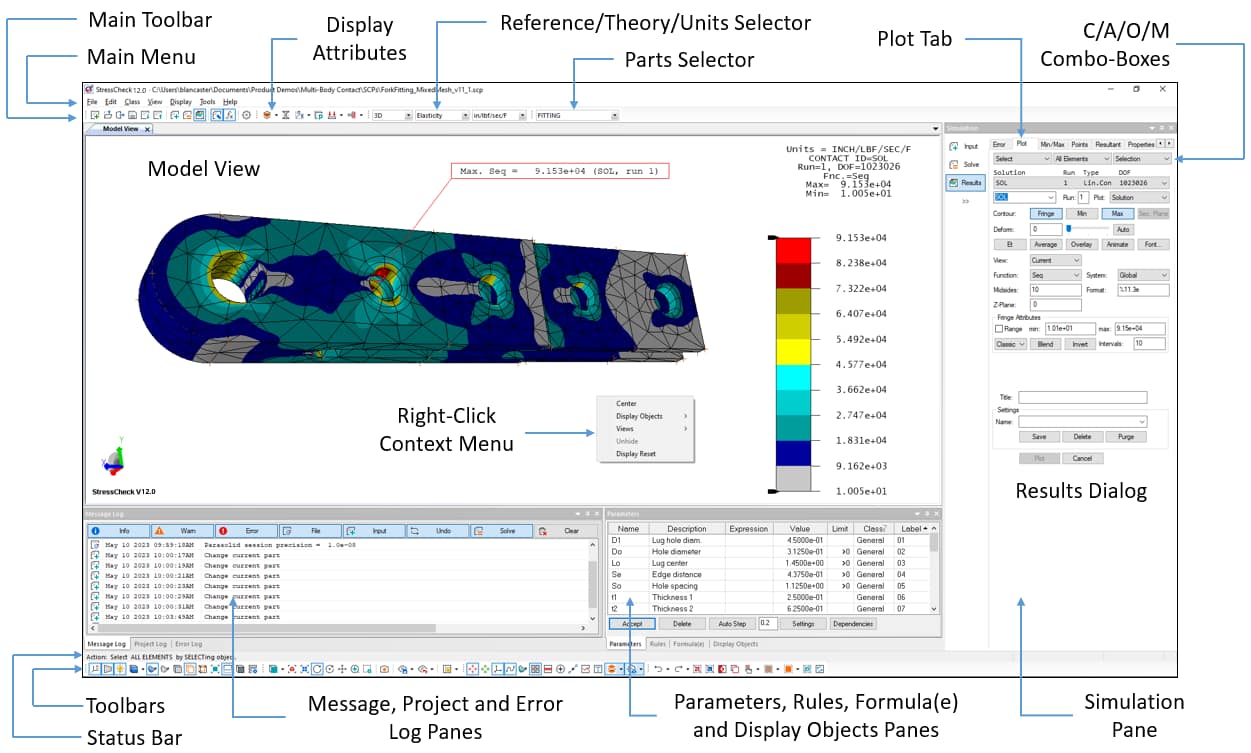
ASIP 2023 Conference Recap
At this year’s ASIP 2023 Conference in Denver, CO, ESRD provided a 2-hour training course titled “Enhancements in StressCheck v12.0 for DaDT Analysis of 3D Fastened Connections”, presented a technical paper titled “Experimental Validation of DTA Modeling of Bonded Wing Skin Repairs”, and passed out 3D printed F-35 and C-130 models at our booth inside the Gaylord Rockies Resort & Conference Center.
Read the summary of conference events, view the ASIP training course content (including the presentation and demo videos), and schedule a preview demo of the upcoming StressCheck v12!
 Serving the Numerical Simulation community since 1989
Serving the Numerical Simulation community since 1989 















